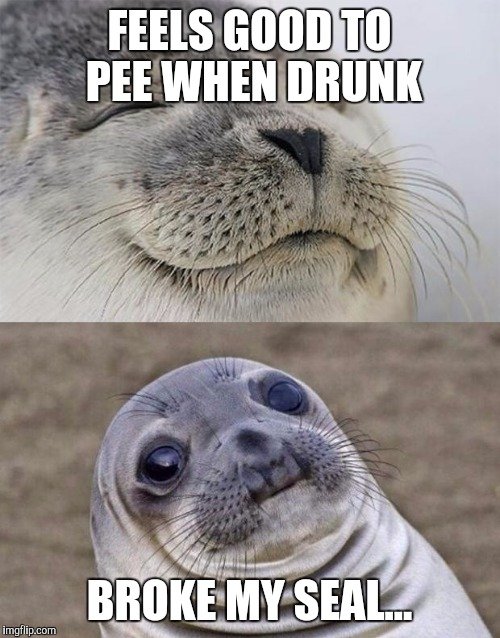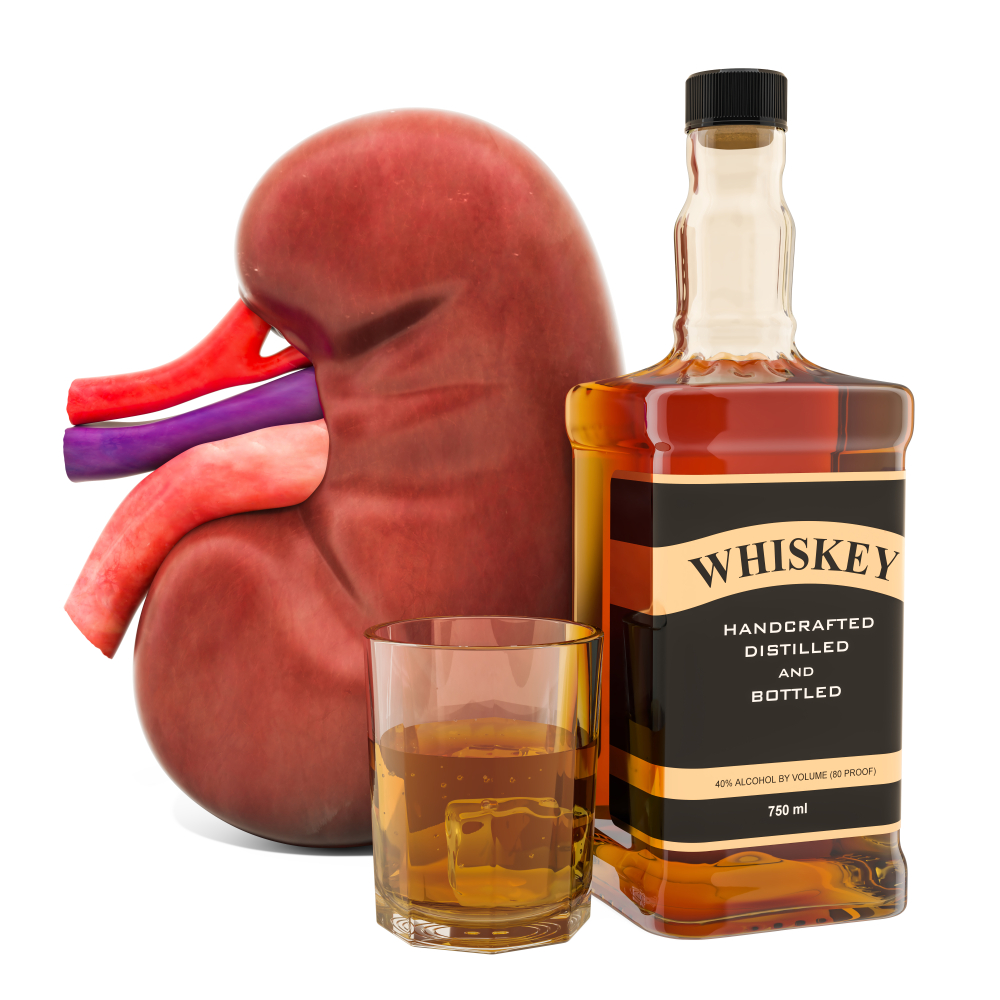Table of Contents (click to expand)
The cause of needing to urinate frequently when drinking alcohol is that it is a diuretic. This means that it promotes the increased production of urine. When you drink alcohol, the hormone responsible for the absorption of water, vasopressin, is suppressed. This causes the kidneys to cease to reabsorb any water for recirculation in the blood, and the body expels fluid at a greater rate than it consumes fluid.
You haven’t even finished your second pint and you’re already dancing: no, it’s not the buzz… you have to pee! Your friend warns you about “breaking the seal”, but you need to pee like your life depends on it. You yield and break the seal, but now your fear has come true — the inexplicable jinx has worked… it seems like you’re urinating more than you’re even drinking!

If you have ever imbibed and are even mildly curious, you’ve surely wondered why alcohol does this. The cause is not inexplicable, however, but quite simple and logical.
It’s A Diuretic
Alcohol makes you pee for the simple reason that it is a diuretic, a substance that promotes the increased production of urine. Our kidneys try to balance the amount of water stored in our bodies by absorbing some and recirculating it into our bloodstream, while also extricating some and venting it through the urethra as urine. While dehydration is dangerous for obvious reasons, overhydration is dangerous, as a surplus of water will dilute the salts necessary for our survival.

The hormone responsible for the absorption of water is known as vasopressin, or the antidiuretic hormone (ADH). Synthesized in the hypothalamus, its activation signals the kidneys to reabsorb the passing water to ensure that we aren’t dehydrated, while its deactivation signals the kidneys to allow water to pass through, ensuring that we aren’t overhydrated.

A diuretic like alcohol will suppress or inhibit the responsiveness of the ADH or vasopressin receptors located on the kidney’s membrane. The repercussions are obvious: the kidney, which is now blinded to the signals by the alcohol, interprets their paucity as consent to let all the water pass through. In other words, your kidneys will cease to reabsorb any water for recirculation in the blood.
The balance of water or fluids previously so carefully maintained most of the time, is now disrupted as your body expels fluid at a greater rate than it consumes fluid — it begins to produce more urine than it should. According to an estimate, for every 1g of alcohol consumed, the urine excreted increases by at least 10ml! This also exacerbates the dehydration caused by alcohol through perspiration.
Also Read: Why Don’t We Pee When We’re Asleep?
The Myth Of “Breaking The Seal” And The Hangover
There exists no seal the breaking of which releases an inexhaustible torrent of urine. This is merely a silly myth. The first instance of urinating has absolutely no bearing on the frequency of subsequent instances. The damage is done the very second the first drop of alcohol is processed by the body. Restraining yourself is futile; it will only cause you pain and discomfort.

Now, because it is the copious loss of water, or simply, dehydration, that is the root cause of a hangover, people are advised to drink plenty of water while imbibing, since the excess water will dilute the molecules of alcohol, thereby preventing them from impairing our kidneys.
However, what they don’t realize is that even the tiniest traces of alcohol will suppress vasopressin receptors and trigger the increased production of urine. The excess water you consume is expelled as excess urine until the alcohol is completely out of your system, which takes around a day or two. The water doesn’t negate the effects, it merely abates them. The hangover, unfortunately, is inevitable.
Also Read: Why Do We Urinate More When It’s Cold?
How well do you understand the article above!

